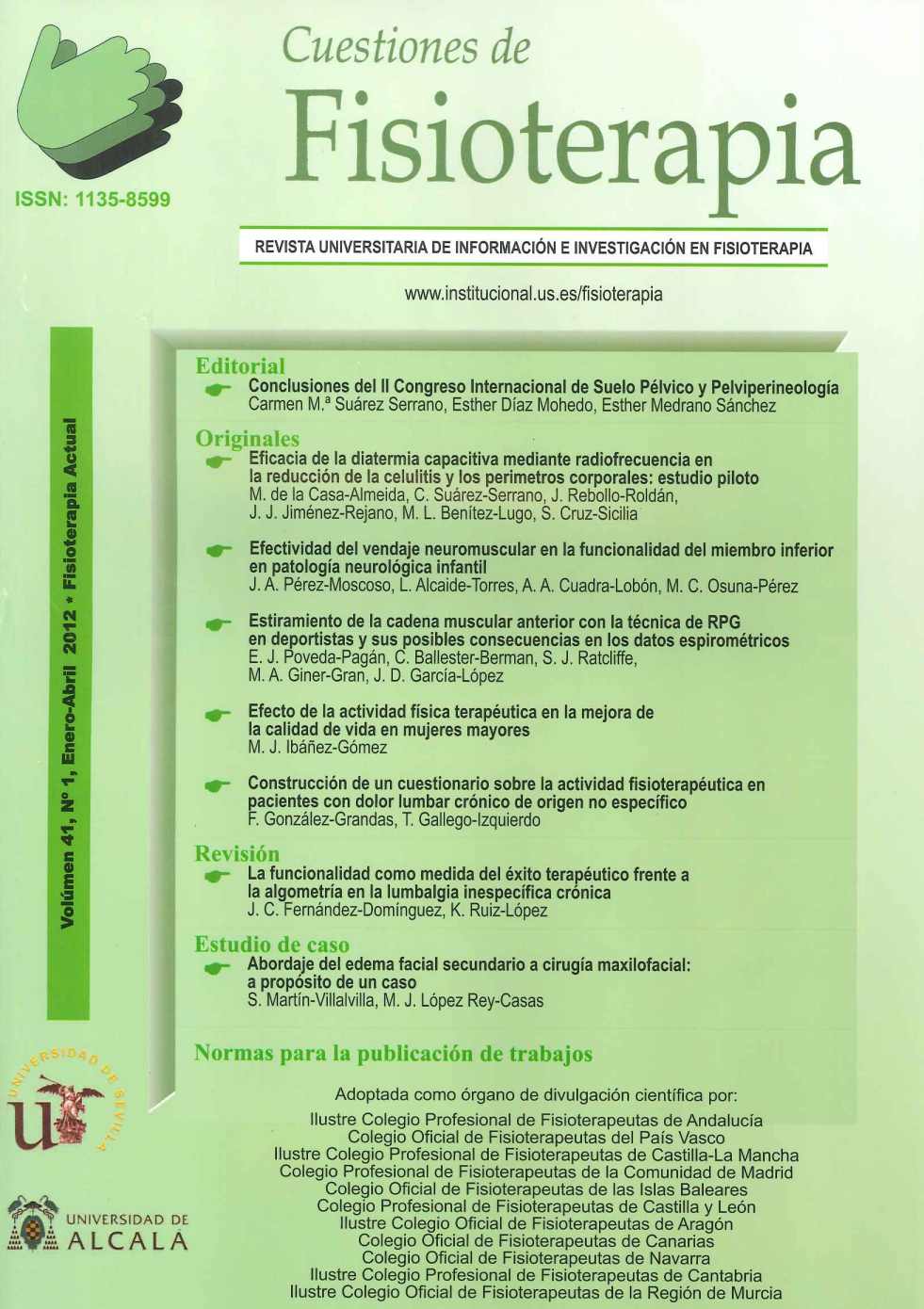Articles
Year 2020, Volume 49, Issue 1
Physiotherapy and use of the International Classification of Functioning, Disability and Health: an exploratory study of participation after stroke
Abstract
the decrease in the level of socio-community participation after an episode of stroke is an aspect underexplored in physiotherapy, with functional and social consequences, as reflected in the International Classification of Functioning (ICF). Objective: identify and describe the characteristics of the level of participation of people after stroke according to age and sex. Material and method: descriptive, prospective, longitudinal study with follow-up of a cohort (n = 45), composed of men (66.7 %) and women, with a mean age in men of 71.4 (SD 6.82) years and in women 68.53 (SD 15.96) years. Four evaluations were carried out, at different times during a year (2018), using the ICF as a scale of the dimensions of the level of participation, gathering activities related to: mobility, self-care and community life. Cross-association analyses were performed according to age and sex. Results: sex and age are not related to each other (p > 0.05). Depending on sex, there are significant differences between both groups (p < 0.05) in the mobility capabilities of the arm, combing/shaving, autonomy, leisure and participation in social works. According to age, the null hypothesis was rejected and significant differences in the capacities of the mobility dimension for transfers and walking long distances were described. Conclusions: the level of participation perceived is higher in men and among those under 70. Age only shows changes in the mobility dimension, while sex described changes for all 3 dimensions.
Keywords: ICF, stroke, mobility, self-care, community and social life, participation.

